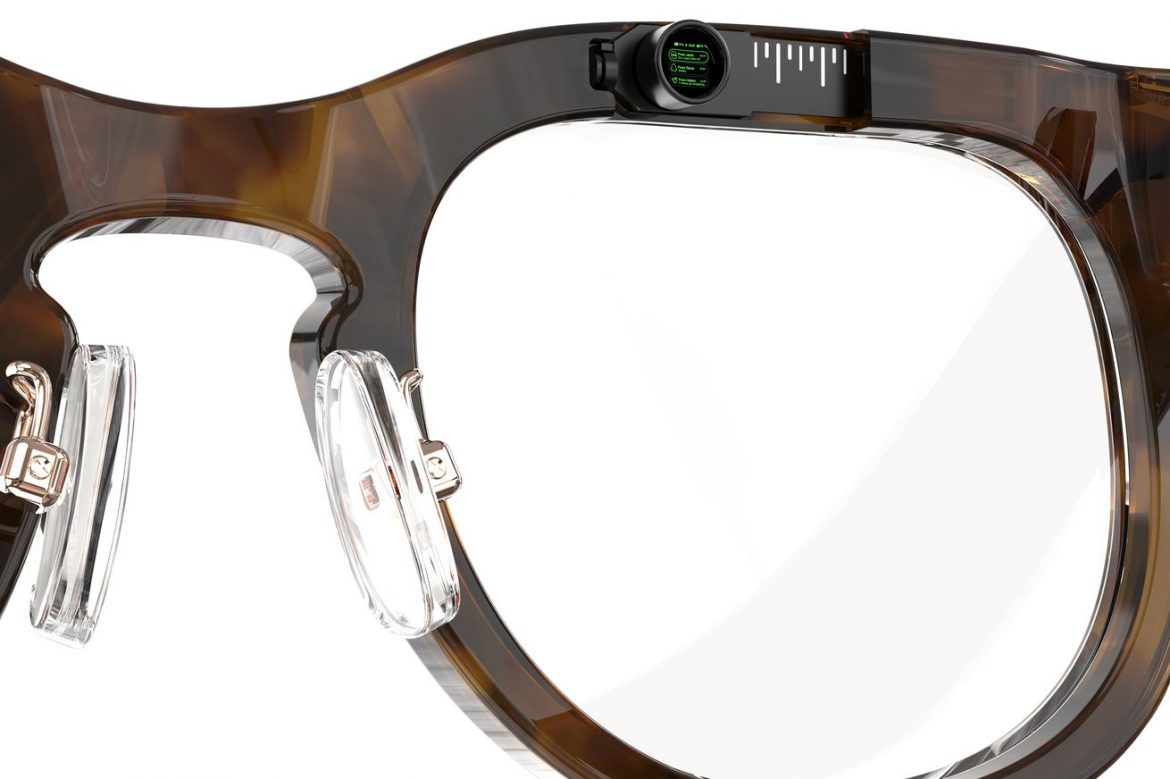
These smart glasses have a tiny little screen hidden in the frame
Image: Halliday
Halliday Glasses have boarded the smart spectacles hype train, featuring “proactive” AI assistance and a near-eye display that shows information directly in the user’s field of view. Wearable technology startup Halliday says its flagship eyewear will be available sometime after CES. Shipping is expected to start “by the end of Q1 2025,” and pricing will be set somewhere between $399 and $499 — pricier than display-free competitors like the $299 Meta Ray-Bans and Solos AirGo Vision.
Halliday says the “DigiWindow” located in the upper right of the frame is the world’s smallest and lightest near-eye display module and can display information to the wearer “regardless of whether they have perfect eyesight or require vision correction.” The display appears as a 3.5-inch screen in the upper-right corner of the user’s view with minimal obstruction, according to Halliday, and remains visible in bright sunlight.
Image: Halliday
The near-eye display is located in the upper-right frame. Checking messages or notes might look a little odd to other people if you need to keep glancing up.
The glasses’ built-in display works alongside an AI assistant that can anticipate what users need by analyzing conversations, answering questions, and providing additional insights without requiring a prompt. “For instance, during a meeting, it can proactively answer complex questions, summarize key discussion points, and generate summarized meeting notes afterward,” Halliday said in its announcement.
The AI features require the glasses to be connected to a smartphone via Bluetooth, according to Halliday, but the company hasn’t mentioned what AI model it uses or if there are additional costs involved. Features include real-time AI translation in up to 40 languages, live navigation for directions, voice-to-text notes transcription, and the display of synchronized lyrics when listening to music. Users can also discreetly view and reply to messages, create audio memos, and display notes like a teleprompter.
The near-eye display is supported on both prescription lenses and if no lens is used at all. The displayed information isn’t visible to other people and can be controlled using either voice commands, frame interface controls, or a ring that features a built-in trackpad.
Image: Halliday
The Halliday Glasses are available in either black or tortoiseshell.
Image: Halliday
Information about the trackpad ring is limited, but it seems like a neat way to control the display features without messing with the actual glasses.
Halliday says the glasses weigh 35 grams (about 1.2 ounces), provide up to eight hours of battery life, and come in two color options: matte black or tortoiseshell. We’ve asked Halliday for more information about the trackpad ring, such as how / if it’s charged and any potential options for color and sizing.
